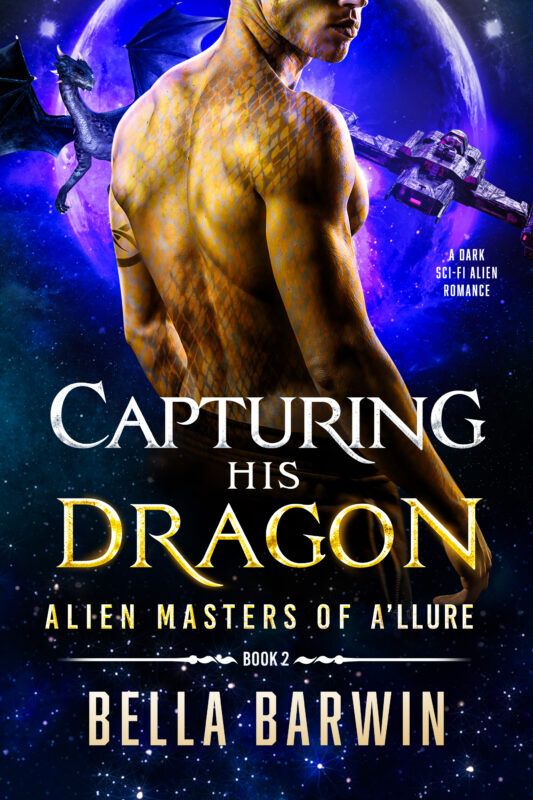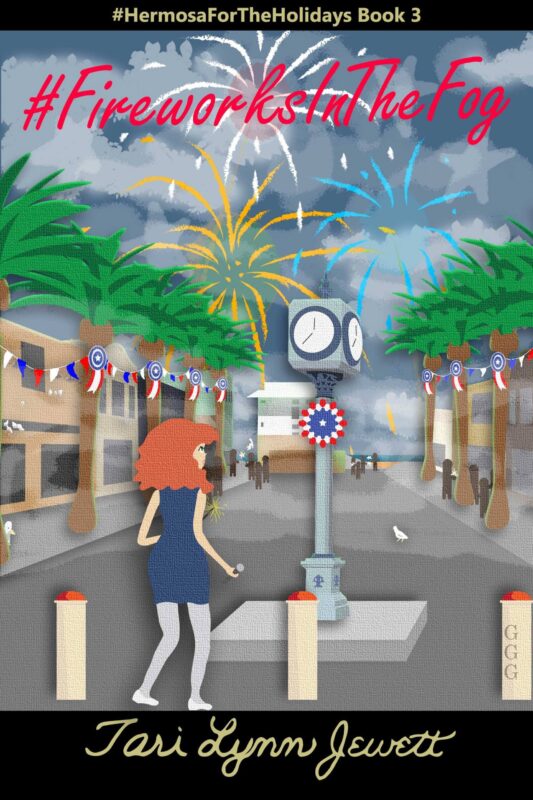In Another Vein
October 30, 2021 by Dianna Sinovic in category Quill and Moss by Dianna Sinovic tagged as Dianna Sinovic, Fictiion, flash Fiction, Halloween, short story

The full moon is my favorite lunar phase. Not because it helps me see better in the darkness—that’s never been a problem. It’s because moonlight infuses the evening with a special glow. It makes me swagger, and maybe take more chances than I should.
On this particular full moon, I am out and about by twelve-thirty; leggings, gray tunic, sensible shoes, my hair knotted atop my head. I think I look sleek like a cat without the whiskers or tail. Some accuse me of walking the streets, but that’s not why I’m out here. It’s hunger, really.
Nostalgia makes me head up Rush Avenue this night. I have memories of sweet drafts, sparkling with life. Ripe pickings, with little danger of getting caught. Part of me says to walk on by and follow my usual routine: Never the same place twice. With the full moon lighting the way, I am more visible than on other nights.
“Hey, girl,” a late stroller shouts from the other side of the deserted street. I ignore him. That is my first mistake. I’m not the only one dressed for inconspicuousness this night.
Another man materializes on my right. A big, muscular fellow, dressed in black.
“Why such a hurry?” he says, but softly, intently. He drifts closer to me, and during that action, I am aware that the late stroller has moved across the street toward me. I am flanked.
I should run—I could easily leave them behind—but the hunger emerges, as it always does when beating hearts are within range. I decide to see what happens if I stay. That is my second mistake.
“The place three doors up has a broken latch on a rear window,” I say. “Easy to enter and look around, if that’s why you’re out here.”
“Maybe,” the big guy says. “And maybe we’re here because we’re looking for someone like you.” His hand grabs my arm, and I can smell tobacco and sweat on him.
The late stroller takes my other arm, but his grip is lighter. He’s shorter, slimmer than the big guy. And his breath as he leans in tells me he’s been drinking. Maybe this duo isn’t out to make a quick buck on stolen goods.
“Nice night for a drive, Matt, don’t you think?” the late stroller says to the big guy as he leers at me. “Especially with the little lady here?”
Matt, the big guy, agrees by laughing, more of a guffaw, and grips my arm more tightly, as though I’ve made any move to get away.
Their car could be any parked along this quiet city block. I have a few seconds to decide on a plan, but I’m distracted by their closeness. Their pulses beat against my arms; even through the tunic’s sleeves I feel them and my hunger surfaces again.
I could sink my teeth into Matt’s hand, but his friend might be strong enough to pull me off.
Unless.
I know how to avoid a third mistake. Moving swiftly, I bite deep, and the reaction is predictable. Matt yelps, letting go of me. I turn just as fast to the other man and draw blood.
“Fuck,” he cries. And I am free once more.
Just as predictable is their rage. No longer am I a target for their lust: They must hurt me because I have hurt them. But I am quick, and did I tell you that I think just as quickly?
Matt rushes me, but I sidestep, and his momentum barrels himself into his friend. They both go down, the friend striking his head on a concrete trash receptacle. He twitches a few times and lies still.
Pushing back to his feet, Matt readies for another assault and then slows. He stares at me. I nod. The venom in my bite has flushed through him.
“What are you?” he says, but the anger that drove him to action a moment ago has dissipated.
I smile. “Give me your hand.” Without hesitation, he complies, and I drink. I’ve had better, but this will do. He watches me, his eyes blinking languidly. “That’s enough for now,” I say. Placing my palm on his wound, the bite seals immediately.
“That was . . . nice,” he says.
“That’s what they all say.” I reach up and gently touch his cheek, his lips. “Sorry about your friend.”
He shakes his head. “Not really a friend. More of a jerk.” He seems unsure of what to do next. “Will I see you again?”
“I should think so,” I say. And then, because I’m fast, I’m gone before he sees where I’m headed, even under a full moon.
2 0 Read moreA Royal Pain
August 30, 2021 by Dianna Sinovic in category Quill and Moss by Dianna Sinovic tagged as Dianna Sinovic, fiction, flash Fiction, short story, Summer Fiction
I botched it.
I am swimming back to the pier where I somersaulted off moments ago. Three people wait for me: Tunis, Vi, and Wally. They could have followed me into the water, but my stumble as I approached the pier’s edge must have spooked them. I was all arms and legs desperately searching for balance.
“Super bad,” Wally yells as I pull myself from the foaming breakers. “No points for you.”

Tunis and Vi giggle. They are sisters. Wally is my brother, who takes on the role of my tormentor whenever our parents are not present. Which is now. We are all four at the pier hoping to catch sight of the phosphorescence that will add a ghostly aura to the waters of the bay once the sky darkens.
But jumping off the pier comes first. Each turn into the water gets graded by a secret system that only Wally knows. My score almost never approaches his, just like my height is always three inches less, and my age is two years behind.
I walk back out on the wooden pier, listening to the creak of my weight on the planks, the slosh of the waves beneath me, and the call of the gulls overhead. It is the finest part of summer vacation, hanging out on the pier, waiting for the night.
“Eeew,” Vi says, pointing at my leg. “Eye worms.” Tunis does a fake scream and runs to the far edge of the pier.
I pluck off the tendrils clinging to my right leg. “It’s just a jellyfish.”
“Fish puke,” Wally corrects. “Only you would find it.”
Straightening back up, I adjust my suit and stride to the end of the pier. It’s thirty feet out—I’ve paced it. This time, as I near the edge, someone dashes past me and cannonballs into the water with a whoop.
Tunis and Vi applaud Wally’s sloppy but cool exit. “Five,” they say, each holding up a hand with five outstretched fingers.
I stick my tongue out. “Show off,” I shout at my brother.
When I look at the sisters, they take a step back. Have I scared them? They are new this year to our strand of Carolina beach.
“You go,” they say, almost in unison. They aren’t twins, but they could be, so alike they move and smile and talk. So immature at seven and eight to my eleven years.
“Follow me,” I command, and retreat several feet from the jump-off to get a running start. Rising on my toes, I pause to let the ocean breeze ruffle the edges of my still-damp hair, and I drink in its salty nip. I could stand here forever, but my audience is waiting.
“Ya – hoo,” I cry, sprinting. I make a perfect, magnificent arc and knife into the bay. When I surface, treading water in the deep drop-off, the sisters are not applauding. That was at least an eight, I think. Instead, they are pointing. At me. Wally is back on the beach, headed toward the pier.
A fat moon is rising at the edge of the world, where the sea ends. What do the girls want? Then I look at the water, the swells lifting me gently in the fast-approaching darkness. I am engulfed in a glowing blue—not only the water that surrounds me, but my hair, my skin, is tinged with an otherworldly color.
Wally has walked to the edge of the pier and stands with Vi and Tunis. They all stare at me.
“She’s queen of the blues,” my brother finally says, laughing, and with another whoop, joins me in the water.
I savor the title. It’s the closest thing to a compliment he’s given me in the last two weeks.
A Dianna Sinovic story will be included in Until Dawn
A Supernatural Anthology
Dianna’s stories are also included in the following titles:
Take Two
July 30, 2021 by Dianna Sinovic in category Quill and Moss by Dianna Sinovic tagged as fiction, short story, Take Two
Ramsey had exactly four dollars and thirty-three cents in his pocket. He knew because he’d just counted it out, to make sure he hadn’t dreamt a fifty tucked away in the far corners of his Levi’s. But no fifty; just the four crumpled singles, plus the loose change. And a seashell, small, striped, and whorled. Ramsey tried to recall why he had the shell—and where the rest of his money had gone.
His fingernails were grimy, and he needed a shave. Or maybe a shower and a shave. And if someone offered him a paper cup of coffee at that moment, he wouldn’t have turned them down.
Those were his thoughts at twelve-thirty that morning. The time he knew for a fact because the bank across the street from where he stood said so, in a blinking green display. The bank’s ATM beckoned him, an oasis to replenish his meager pocket of money, if only he had something to withdraw.
Ramsey crossed the street anyway, drawn to the lighted cash machine. This was not a good place to hang out at that hour, on that street in Philadelphia, a dim array of storefronts shuttered for the night. The alleys sometimes echoed with the moans and cries of unknown deals gone bad. He always passed them quickly, keeping to the shadows when he could.
Next to the bank’s ATM, on the building just to the left, a smaller, illuminated sign advertised: Books. Ramsey didn’t see any books in the windows of that narrow slice of real estate. A grid was pulled down over them, protection against random thievery. He turned away, but stopped when an interior light blinked on. A chain rattled behind the door, and the entrance opened.

A man a few inches taller and a few years older than Ramsey had one hand on the door handle. His dark eyes observed Ramsey beneath bushy eyebrows. Stepping back, he gestured for Ramsey to enter. A ring on his hand glittered a ruby red. “I’ve been watching and waiting for you,” he said. His words rolled over Ramsey like waves crashing at the Jersey Shore.
“Me?” Ramsey’s voice squeaked into falsetto range. His hands trembled.
“Please come in, Mr. Ramsey.” He waited for Ramsey to pass through the door, then shut and locked it. Again with a gesture, the man indicated that Ramsey should follow him. The room smelled of dust and crumbling paper, the walls lined with bookshelves from floor to ceiling, the lights high above them shining faintly onto stack after stack of books.
At the rear of the shop, the shopkeeper, or Ramsey assumed it was the shopkeeper, slipped behind a massive chrome and glass counter. Ramsey faced him across the expanse and wondered why he was there.
“Reade,” the man said, and pushed a paper cup of coffee toward Ramsey. “Conlan Reade. Do you take cream or sugar?”
“Just black,” Ramsey managed to say. He stared into the cup, the tint of the dark brown liquid mirroring the sepia quality of the shop. “Thank you.”
“A special Colombian blend,” Conlan Reade said. “I hope you enjoy it.” He smiled as Ramsey took a sip.
It tasted of dense jungle growth and the wild brilliance of tropical flowers.
“You’re open kind of late,” Ramsey said, savoring the coffee. It had been how many days since his last cup? Looking down at his jeans, he noted that they were as grimy as his hands felt. Was he sleeping on the street these days? Why couldn’t he remember?
Conlan Reade set down his own cup and spread his hands. “At this hour, I’m only open for you, Mr. Ramsey. As I told you at the door, I’ve been waiting. Your book came in.”
“Book?”
But Conlan Reade had stepped away from the counter, leaving Ramsey alone with his thoughts. And try as he might, he could not recall ordering any book anywhere. He had no home anymore, he knew then, no comfortable, quiet place to read.
“Here it is,” Conlan Reade said. He placed a thin, hardback volume on the glass of the counter.
Ramsey put down his cup and reached for the book, then pulled his hands back before touching it. His face flushed. “I’m kind of down on my luck,” he said, wiping his hands on his jeans.
“Don’t worry about it,” Conlan Reade said. He handed him a towelette from a container that Ramsey hadn’t noticed. “I think you’ll like the book.”
After cleaning his hands, Ramsey once again reached for the book. Another Life to Live. He leafed through the pages, curious as to why he would have ordered that title. He remembered how little money he had with him, sighed, and put the book back down.
“Thanks for ordering this,” he said. “I don’t think I can afford it right now, though. I’m so sorry.” Again his face flushed.
“It’s surprisingly inexpensive,” Conlan Reade said. He punched a few keys on a small calculator. “Only four dollars and thirty-three cents. I’ll wrap it up for you.”
Ramsey laid out the money, folded the receipt and slipped it into his now penniless pocket. He felt the seashell and pulled it out.
“I might as well give this to you, too, Mr. Reade. I have no use for it.”
Conlan Reade examined the shell, using a magnifier he placed over his right eye. He handed it back. “You’ll be needing this,” he said. “Hold it to an ear when you are in need of direction.”
Not wanting to argue, Ramsey pocketed the shell. It was small, after all; no trouble, really.
“Good luck, Mr. Ramsey.” Conlan Reade walked him to the door of the shop and shook his hand.
Two blocks later, Ramsey turned a corner and halted under a streetlamp. He removed the wrapping from the book, and tossed the paper into a nearby receptacle. Tipping the cover to the light, he read the author’s name: A.L. Ramsey.
Once upon a time, he’d answered to Arthur Lewis Ramsey.
Ramsey opened the book and began to read.

More of Dianna’s short stories can be found in the following books.
Birthday Wishes
May 30, 2021 by Dianna Sinovic in category Quill and Moss by Dianna Sinovic tagged as Birthday Wishes, fiction, short story

The first rays of the sun reached Zoë’s backyard shrine. They bathed the structure in slanted, golden stripes, as light filtered through the branches of the maples. Zoë knelt in front of the assembled stones and the small, smiling Buddha. She didn’t claim any religion, but she liked the way the Buddha looked, the way he seemed to know her thoughts, even if he was just an eight-inch-high statue from a local curiosity shop.
The rubber garden kneeling pad made the knees of her leggings damp, and she could feel the slight breeze from the south, from the foothills, as it lifted her bangs. Shivering slightly, Zoë placed her hands on the broad granite that formed the base of the shrine. The coolness of the rough stone added to her chill. By midday, she would walk through the yard in only shorts and a lightweight tee, but at this early hour, the temperature hovered in the forties.
Still, it was important to be there, as the sun rose, to let Daniel know that she remembered.
“Happy birthday, Danny,” she said. She stared at the smiling Buddha as though he were a stand-in for her friend, who had been neither short nor fat, nor a god. Daniel’s smile had buoyed her more times than she could count, though, and she missed him for that and for other reasons.
He was buried four hundred and twenty-three miles away, and because that was an inconvenient distance to visit his grave often, she had erected the shrine.
“It’s been four years, and I miss you still.”
The small things matter in friendships as much as the cosmic ones. He knew her preference for horror films (always and ever after The Shining); he brought her Ecuadoran coffee by the half-pound and ground it precisely for her French press pot; he was the only person who held her confession that she regularly cheated at poker. He might have been her lover—she held that truth deep in her heart.
Zoë dipped her fingers into the font next to the Buddha and kissed her fingertips before massaging the statue’s round belly. “This is for you, Danny. My luck is holding, but I’m sure you could use more wherever you are.”
In addition to the Buddha, the font, and the stones, the shrine had room for a ceramic vase filled with several red roses. The sun, now full above the horizon, made the moisture on the rose petals glisten and sparkle. The day would be a fine one, and Zoë would not left herself be dragged down into dark memories: his frail hand as it lay in hers, she waiting there beside his bed as his body shut down.
“Happy thoughts, Danny,” she said, her voice catching in her throat.
And then, as she watched, her mouth open in astonishment, the rose petals released one by one from their sepals, drifting down toward the granite. Instinctively, she turned her palms up, letting the back of her hands rest on the shrine, and felt petals settle there.
She brought her cupped hands to her face and inhaled the scent. Except that it wasn’t the lush aroma of roses but the nuttiness of coffee—Ecuadoran coffee. When she opened her palms to look, her hands were filled with coffee beans.
The Buddha smiled at her. Or maybe it was really Daniel’s smile.
Laughing, Zoë carried the handful of beans inside and made a pot of coffee.
0 0 Read moreSacrifice by Dianna Sinovic
April 13, 2021 by Bethlehem Writers Group in category From a Cabin in the Woods by Members of Bethlehem Writers Group tagged as Bethlehem Writers Group, BWG, Dianna Sinovic, flash Fiction, short story
Ryner held the sharpened spade two hand widths above the marker and, with a grunt, drove it into the thick, dense soil. The first shovelful was always the hardest, but his stocky frame gave him the power needed to break through the crusted surface. He flung the damp dirt aside and, without pausing, set the spade in place again.
The scout had located the precise spot for Ryner to dig. But the hole must be deep enough, and that would take time—something he had very little of. The cavity must provide a secure haven for the sacred pillar. That meant at least four velens down. He must hurry.
Already he could feel the gust from the advancing horde flowing over his face and arms. They were at most a half medido from where he stood. So many crowded into the vast column and so tightly packed were they that, like the outflow from an impending storm, they pushed the air itself before them, bringing with it the pungent scent of crushed chitin.
Sweat beaded on his forehead and ran down his face. It stung his eyes, making him blink and squint. He could see nothing on the skyline yet, but he must not stop.
He knelt and levered more dirt from the hole. Then more. The thick clods left his hands stained and grimy. Was it deep enough? There was a blackness low on the eastern horizon now. Faintly, the buzz and clap from that darkness joined the twitter of the field sparrows hunting in the fallow meadow. The fear he had kept tamped down began to slow his movements.
He unwrapped the pillar from its royal blue cloth and stared at the intricate, filigreed lettering, the language of the Ancients. Exposed to the air, the pillar vibrated slightly in his hands. No longer than a hunting knife, it was as thick as his arm. Quickly he rewrapped it and thrust it into the hole, then tossed in clods of earth, chunk upon chunk, to bury it. The invisible thread connecting him to its power broke with the last handful of sod. His muscles relaxed and his shoulders straightened. If that depth was enough to sever his tie, it was more than adequate to ensure the horde would never sense it.
He stomped the dirt with his boots and covered the small, fresh mound with dried grasses. He placed a cairn of rocks on the spot. Blayne would know the sign; it would take him several moon cycles, but he would find it.
The buzzing had grown deafening, the sky dark at midday, and the swarm was there. He was lifted and twirled. The pain engulfed him, roaring through him until every nerve fiber was afire. But the pillar was safe.
0 0 Read moreAffiliate Links
A Slice of Orange is an affiliate with some of the booksellers listed on this website, including Barnes & Nobel, Books A Million, iBooks, Kobo, and Smashwords. This means A Slice of Orange may earn a small advertising fee from sales made through the links used on this website. There are reminders of these affiliate links on the pages for individual books.
Search A Slice of Orange
Find a Column
Archives
Featured Books
CAPTURING HIS DRAGON: A Dark Sci-Fi Alien Romance
She isn’t what she seems…
More info →DARK WINE AT THE GRAVE
Henry never thought he’d turn someone vampire. Especially someone who wasn’t his mate…
More info →ALASKA INFERNO
Can a series of wildfires lead to true love under a midnight sun?
More info →#FIREWORKS IN THE FOG
So, you’d like to become a social media star…
More info →Newsletter
Contributing Authors
Search A Slice of Orange
Find a Column
Archives
Authors in the Bookstore
- A. E. Decker
- A. J. Scudiere
- A.J. Sidransky
- A.M. Roark
- Abby Collette
- Alanna Lucus
- Albert Marrin
- Alice Duncan
- Alina K. Field
- Alison Green Myers
- Andi Lawrencovna
- Andrew C Raiford
- Angela Pryce
- Aviva Vaughn
- Barbara Ankrum
- Bethlehem Writers Group, LLC
- Carol L. Wright
- Celeste Barclay
- Christina Alexandra
- Christopher D. Ochs
- Claire Davon
- Claire Naden
- Courtnee Turner Hoyle
- Courtney Annicchiarico
- D. Lieber
- Daniel V. Meier Jr.
- Debra Dixon
- Debra H. Goldstein
- Debra Holland
- Dee Ann Palmer
- Denise M. Colby
- Diane Benefiel
- Diane Sismour
- Dianna Sinovic
- DT Krippene
- E.B. Dawson
- Emilie Dallaire
- Emily Brightwell
- Emily PW Murphy
- Fae Rowen
- Faith L. Justice
- Frances Amati
- Geralyn Corcillo
- Glynnis Campbell
- Greg Jolley
- H. O. Charles
- Jaclyn Roché
- Jacqueline Diamond
- Janet Lynn and Will Zeilinger
- Jaya Mehta
- Jeannine Atkins
- Jeff Baird
- Jenna Barwin
- Jenne Kern
- Jennifer D. Bokal
- Jennifer Lyon
- Jerome W. McFadden
- Jill Piscitello
- Jina Bacarr
- Jo A. Hiestand
- Jodi Bogert
- Jolina Petersheim
- Jonathan Maberry
- Joy Allyson
- Judy Duarte
- Justin Murphy
- Justine Davis
- Kat Martin
- Kidd Wadsworth
- Kitty Bucholtz
- Kristy Tate
- Larry Deibert
- Larry Hamilton
- Laura Drake
- Laurie Stevens
- Leslie Knowles
- Li-Ying Lundquist
- Linda Carroll-Bradd
- Linda Lappin
- Linda McLaughlin
- Linda O. Johnston
- Lisa Preston
- Lolo Paige
- Loran Holt
- Lynette M. Burrows
- Lyssa Kay Adams
- Madeline Ash
- Margarita Engle
- Marguerite Quantaine
- Marianne H. Donley
- Mary Castillo
- Maureen Klovers
- Megan Haskell
- Melanie Waterbury
- Melisa Rivero
- Melissa Chambers
- Melodie Winawer
- Meriam Wilhelm
- Mikel J. Wilson
- Mindy Neff
- Monica McCabe
- Nancy Brashear
- Neetu Malik
- Nikki Prince
- Once Upon Anthologies
- Paula Gail Benson
- Penny Reid
- Peter J Barbour
- Priscilla Oliveras
- R. H. Kohno
- Rachel Hailey
- Ralph Hieb
- Ramcy Diek
- Ransom Stephens
- Rebecca Forster
- Renae Wrich
- Roxy Matthews
- Ryder Hunte Clancy
- Sally Paradysz
- Sheila Colón-Bagley
- Simone de Muñoz
- Sophie Barnes
- Susan Kaye Quinn
- Susan Lynn Meyer
- Susan Squires
- T. D. Fox
- Tara C. Allred
- Tara Lain
- Tari Lynn Jewett
- Terri Osburn
- Tracy Reed
- Vera Jane Cook
- Vicki Crum
- Writing Something Romantic
Affiliate Links
A Slice of Orange is an affiliate with some of the booksellers listed on this website, including Barnes & Nobel, Books A Million, iBooks, Kobo, and Smashwords. This means A Slice of Orange may earn a small advertising fee from sales made through the links used on this website. There are reminders of these affiliate links on the pages for individual books.






















































